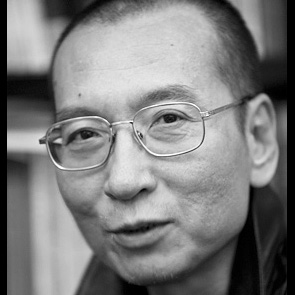Front Line Defenders mourns the passing of Liu Xiaobo
“I have no enemies, but still I want to say to this regime, which is depriving me of my freedom, that I stand by my convictions, expressed in my June 2nd hunger strike declaration twenty years ago. I have no enemies and no hatred. None of the police who monitored, arrested and interrogated me, none of the prosecutors who indicted me and none of the judges that judged me are my enemies. I have no enemies. And if I may be permitted to say so, the most fortunate experience of these past twenty years has been the selfless love I have received from my wife Liu Xia.”
Front Line Defenders mourns the loss of Liu Xiaobo (刘晓波), writer, Nobel laureate, and human rights defender. Liu Xiaobo, aged 61, died of multiple organ failure on 13 July 2017 at the First Hospital of China Medical University in Shenyang, Liaoning Province. The human rights defender was on medical parole, serving an 11-year prison sentence on charges of “inciting subversion against state power.” Prior to his death, Liu Xiaobo spent two decades in passionate support for the causes of peace, freedom, and human rights in China.
In pursuit of these ideals, he gave up an esteemed career, years of his freedom, and ultimately, his life.
Liu Xiaobo is the author of seventeen books and hundreds of essays promoting government reform, fair governance, and human rights. The Chinese government began banning Liu Xiaobo’s writings in the early 1990’s, but they soon turned to harsher methods of retaliation. The human rights defender was sentenced to three years of re-education through labour in October 1996 for co-drafting a declaration disagreeing with China’s stance on Taiwan. Ten years later, a Beijing court announced Liu Xiaobo’s most recent prison sentence: 11 years’ imprisonment for his role in composing the “Charter 08” manifesto calling for liberalising reforms in China. During the second year of this sentence, Liu Xiaobo was awarded the 2010 Nobel Prize for Peace in recognition of his commitment to non-violent struggle for human rights.
In addition to the legacy of his written work, Liu Xiaobo leaves behind a legacy of valiant actions. Many first learned of the human rights defender as a result of the hunger strike he organized during China’s Tiananmen protests of June 1989, forgoing food for days in pursuit of government reform. When the Chinese military began indiscriminately killing student protesters on 4 June, Liu Xiaobo negotiated with authorities the peaceful evacuation of hundreds of students from Tiananmen Square, potentially saving countless lives. The defender was sentenced to 18 months imprisonment for his participation in the protests, and again for six months in May 1995 for organizing a petition to recognize government wrongdoing at Tiananmen.
Sometime during his 2009 prison sentence, Liu Xiaobo’s health fell into a steady decline. Despite daily oversight of their prisoner, Jinzhou Prison officials failed to facilitate sufficient medical attention to detect that the human rights defender was rapidly progressing through the early and intermediate stages of liver cancer. When doctors finally diagnosed the human rights defender in late May 2017, Liu Xiaobo’s cancer had already reached a terminal phase. Even so, the defender was not granted medical parole until 26 June 2017, almost one month later. During Liu Xiaobo’s two weeks of treatment in the First Hospital of China, authorities continually denied requests from the defender and his wife to leave the country for medical treatment. On 12 July 2017, the First Hospital announced that Liu Xiaobo was suffering from liver failure, kidney failure, and septic shock; the defender succumbed to his ailments the following day.
Front Line Defenders holds the Chinese government responsible for failing to properly detect and treat Liu Xiaobo’s illness in timely manner sufficient to save his life or ease his suffering.
Chinese detention authorities have a recorded history of ignoring symptoms and refusing treatment for serious medical emergencies of human rights defenders in detention, at the cost of their health, well-being, and their lives. In addition, Front Line Defenders joins numerous international organizations and state governments to demand that Chinese authorities release Liu Xia, wife of Liu Xiaobo, from her illegal and arbitrary detention. Accused of no crime, Liu Xia has been kept under incommunicado house arrest since her husband’s receipt of the 2010 Nobel Peace Prize. Liu Xia has suffered enough and must be released.
“Liu Xiaobo was an icon of non-violent resistance in defence of human rights,” said Andrew Anderson, Executive Director of Front Line Defenders. “Despite the most ardent attempts of the Chinese government to silence him, Liu demonstrated amazing resilience in his struggle for the dignity and betterment of his fellow citizens.”

